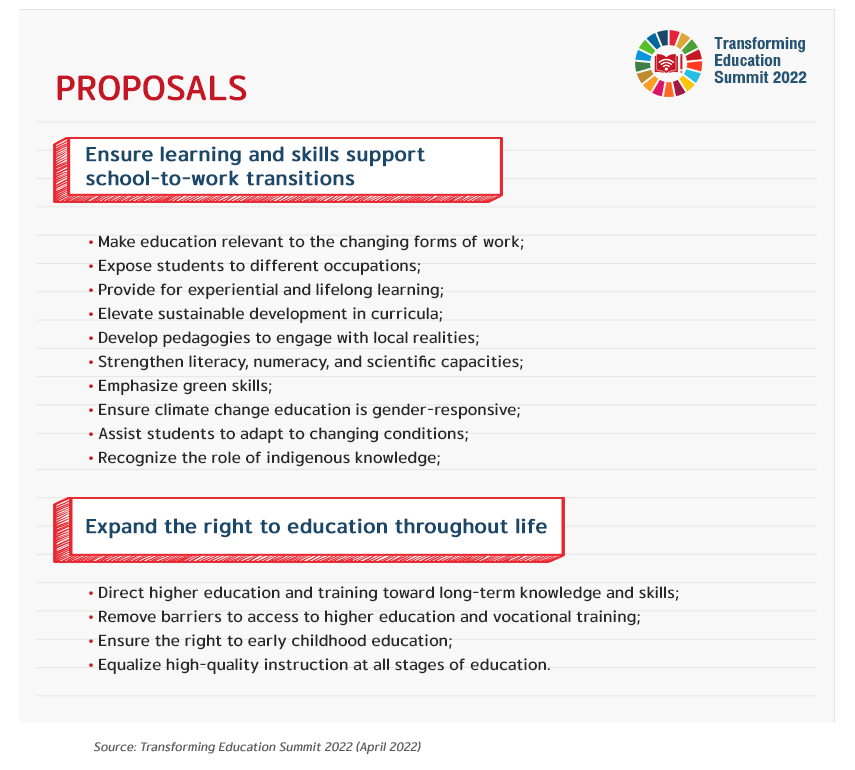
Even today, some 773 million youths and adults still lack basic literacy skills, two-thirds of whom are female. One in four youths in lower-income countries is still illiteracy while significant portions of 15-year-old youths in schools in middle- and upper-income countries are unable to comprehend what they read beyond the most basic levels.
This is even more concerning considering future trends happening now, right before eyes. Educational achievement is back-sliding; The proportion of children in lower- and middle-income countries who are unable to read a simple text by the age of 10 may rise from the pre-pandemic 50% to potentially up to 70%. In addition, access to early childhood education and higher education is expected to develop slowly, with their respective gaps projected to remain particularly wide. While upper-income countries could achieve 100% participation in higher education as early as 2034, low-income countries are projected to achieve less than 15% participation by 2050. All this is amid uncertainty as to how climate change impacts education; Climate change and subsequent ecosystem destabilization will present new challenges to ensuring the right to education, be it teacher and student displacement, damage to school infrastructures, food insecurity, disease, and poverty, particularly for the most vulnerable.
Meanwhile, shortcomings in education persist, following individuals throughout their lives; Since 1990, labor force participation rates have been steadily declining across nearly all world regions and socioeconomic groups. This is especially true for youth participants between the ages of 15 and 24; One in five youths today is neither employed, enrolled in school, nor receiving any kind of training. This will make it difficult for education to keep pace and stay up with the ever-shifting labor markets; Labor markets will continue to be disrupted and reshaped by a varied set of structural changes, from the gig, freelance, and contractor economies, to AI and automation. New employments will continue to emerge as sustainable technologies are adopted, while others will continue to disappear as countries scale back on their carbon consumption, relying less on resource-intensive industries.
Significant discrepancies in education, and thereby labor market participation, remain based on economic disparities, gender, and geographical barriers, ethnic and linguistic discrimination, and lack of cultural relevance, all of which have a significant negative impact on educational achievement, learning, and skill development. To counter that, here are some proposals included in the Reimagining Our Futures Together: A New Social Contract for Education report of the International Commission on the Futures of Education.

The Thai government will always encourage the public and the private sectors to join forces in developing an educational system that takes into account global trends, fosters global citizenship, and teaches 21st-century skills to students, equipping them with the knowledge and confidence they need to compete for employment, domestically and internationally. In doing so, emphasis will be placed upon cultivating a culture of lifelong learning to ensure more opportunities for the existing workforce to reskill and upskill so that they can keep pace and stay up with new technologies and innovations, particularly skills relevant to promoting green economies. Furthermore, the government will enlist the assistance of the private sector to jointly identify new skills needed in the future to enable the linkage of education and employability.
Source: Transforming Education Summit 2022 (April 2022)

